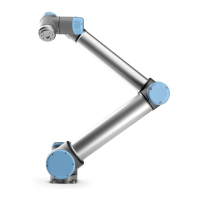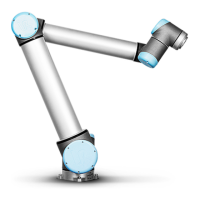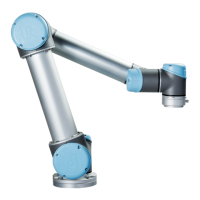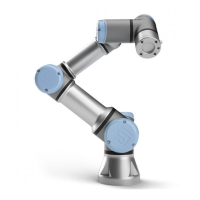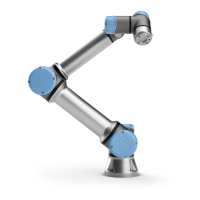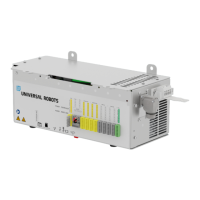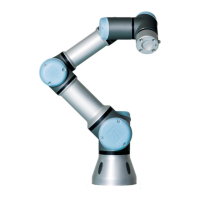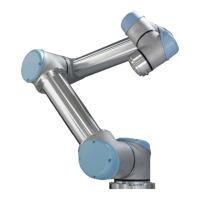Tool Position The text boxes display the full coordinate values of the TCP relative to the
selected feature. You can configure several named TCPs (see). You can
also tap Edit pose to access the Pose Editor screen.
Joint Position The Joint Position field allows you to directly control individual joints. Each
joint moves along a default joint limit range from − 360
∘
to + 360
∘
, defined
by a horizontal bar. Once the limit is reached you cannot move a joint any
further. You can configure joints with a position range different from the
default (see 5.6.2. Joint Limitson page139), this new range is indicated
with red zone inside the horizontal bar.
Example
WARNING
1. In the Setup tab, if the gravity setting (see) is wrong,
or the robot arm carries a heavy load, the robot arm
can start moving (falling) when you press the
Freedrive tab. In that case, release Freedrive again.
2. Use the correct installation settings (e.g. Robot
mounting angle, payload mass and payload center
of gravity offset). Save and load the installation files
along with the program.
3. Payload settings and robot mounting settings must
be set correctly before operating the Freedrive
button. If these settings are not correct, the robot
arm will move when you activate Freedrive.
4. The Freedrive function must only be used in
installations where the risk assessment allows it.
Tools and obstacles must not have sharp edges or
pinch points. Make sure that all personnel remain
outside the reach of the robot arm.
User Manual 329 UR16e
9.Move Tab
Copyright © 2009–2024 by UniversalRobotsA/S. All rights reserved.
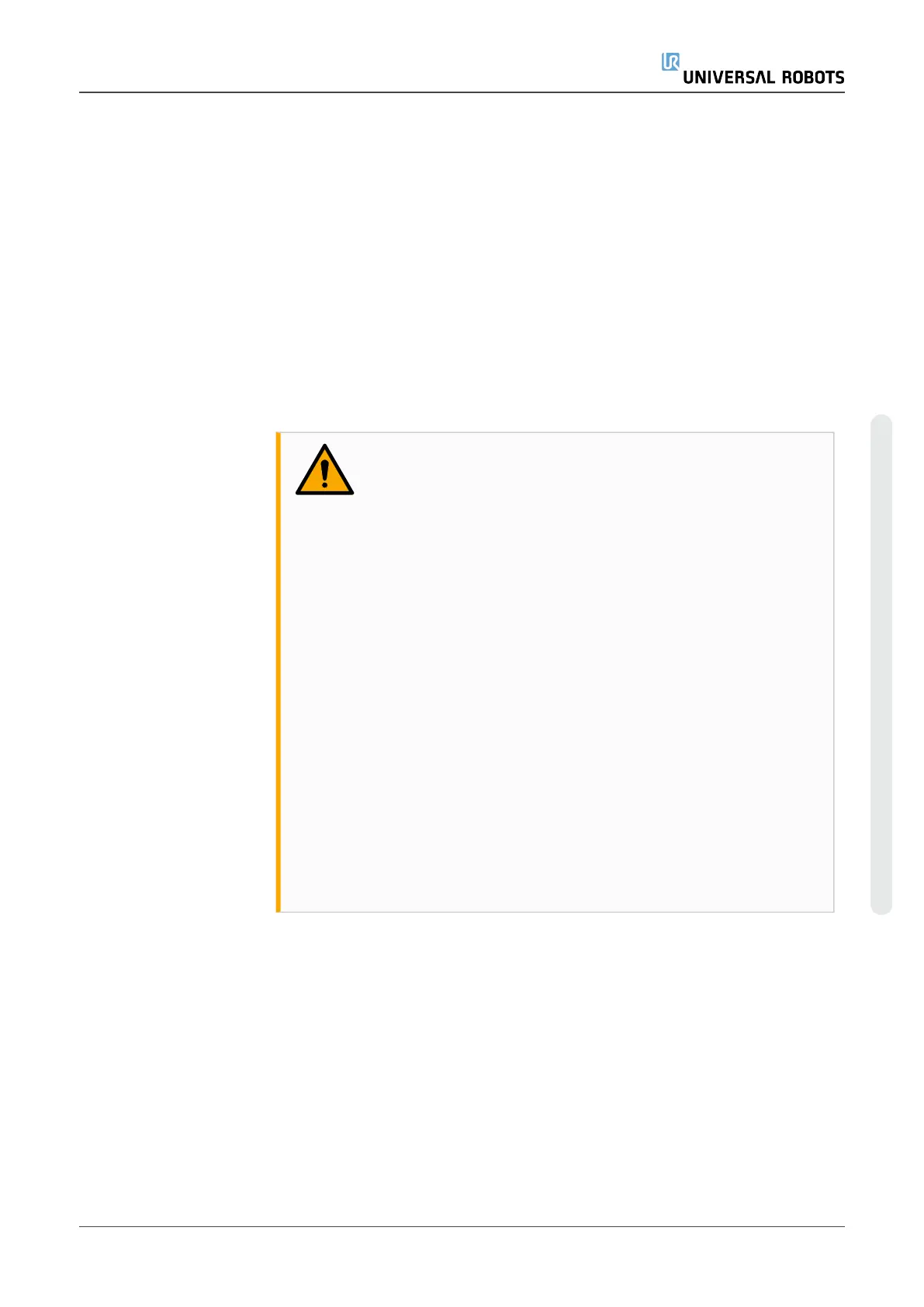